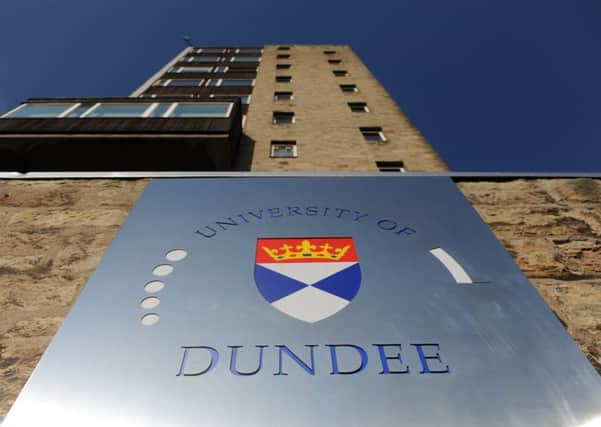Dundee pensioner gift leads to cancer breakthrough


Celia Gordon made the donation to Professor Stewart Fleming’s research team at the university’s Clinical Research Centre at Ninewells Hospital in 2009, and the money was used to kick-start a study on a form of inherited kidney cancer. The research has resulted in the discovery and development of a potentially life-saving diagnostic test.
Fiona Fraser, chair of the Ninewells Cancer Campaign, said: “This work shows the tremendous value of the money that is donated to cancer research.
Advertisement
Hide AdAdvertisement
Hide Ad“It isn’t just the large donations from charities that make the difference - all of the money people give us goes towards making a real impact and, as with this work, transforming the lives of patients.”
Following the £3000 donation, Professor Fleming led an international collaboration with colleagues in Ireland and Norway which has developed the new test for the rare form of inherited kidney cancer SDHB-associated renal cell carcinoma.
“This work started with the money we received from Mrs Gordon,” said Prof Fleming. “Just after we received the donation we were referred a patient with a very unusual kidney cancer, and when we tested her we found it was from a previously unrecognised sub-group of inherited kidney cancers.”
He continued: “We started a project to see if we could develop a new test which would allow us to identify these cancers, the genes involved and be able to start treatment earlier and I am happy to say we have now done that.
“This is important because if we can properly identify cancers like this early then they can be removed while still small, thereby increasing the chances of survival. In the case of this particular type of cancer, it is an inherited form so we are able to inform relatives of the patient and monitor them so that if they go on to develop a tumour we can hopefully detect it early and treat it while still readily curable.”
A university spokesman explained: “Nearly 1,000 patients a year in Scotland develop kidney cancer. While some of these are cured by surgery many will require additional treatment and sadly almost 400 will die of their disease.
“Earlier use of more accurate diagnostic tests of the type developed by Professor Fleming and colleagues will help in the fight against kidney cancer. Professor Fleming has worked in the field of genetic causes of kidney cancer for more than 20 years and he has been involved in the discovery of several of the genes responsible for this common cancer. This latest work represented another significant step in understanding the causes of the disease.”
Mrs Gordon is due to visit the Clinical Research Centre tomorrow to be briefed by Prof Fleming on the impact of the research she funded.
SEE ALSO: